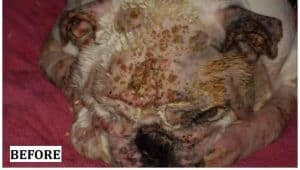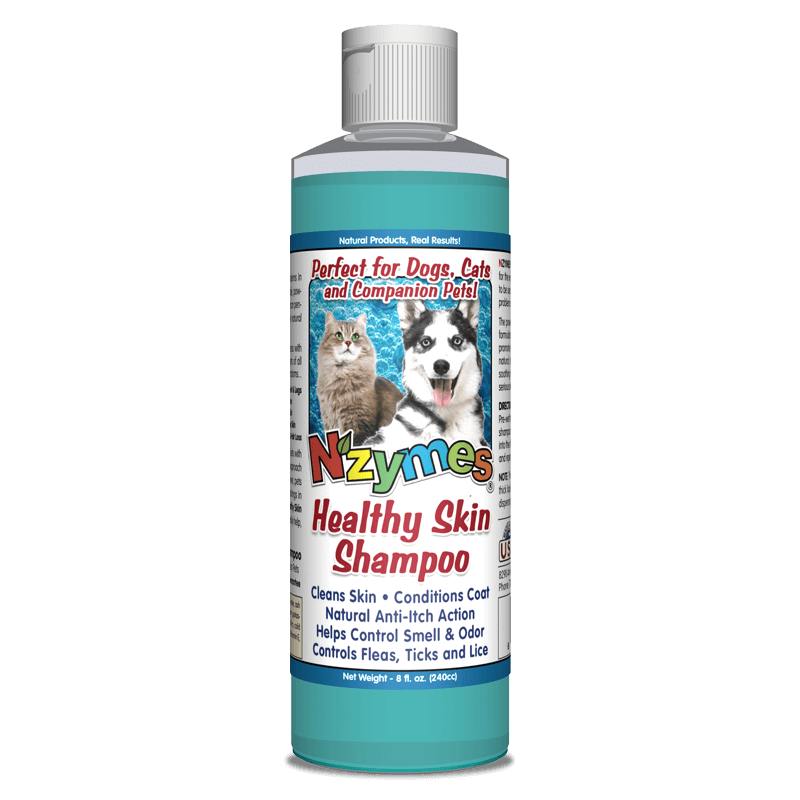Dog Allergies vs. Immune Suppression
When to Decide Immune Suppression is a Failing Approach
When it comes to on-going or ‘out of control’ dog skin and itching problems, a trip to the local vet will most often result in a Diagnosis putting the blame on ‘Allergies’. If this does not come up on first visit, it is likely after several more. When you cannot visually SEE a cause, it appears to be a logical assumption in the veterinary world that is must be an “allergic reaction” to something. Allergy testing is often recommended to validate the assumption, which – as we tell our patrons – will most often show a long list of ‘things’ the dog is supposedly ‘allergic to’, like foods, grass, etc. However, as we can predict, with months or years of trying to eliminate everything the dog is supposedly ‘allergic to’, little progress has been made, and yet the dogs’ symptoms have increasingly worsened. This has been our experience – based on 10’s or thousands of such cases since 2000. The pet parent, as this point, should be thinking, “something must be OFF here”. Examples of how the Nzymes approach works with worst Skin issues.
Immune Suppression Treatments
The standard approach with these ‘dog allergies’ assessments is immune suppression – since the analysis is that that body is basically attacking itself (auto-immune response) due to some outside force. Unfortunately, never is the concept of ‘inside force’ considered or investigated; wherein, there is a REAL internal health issue causing the immune reaction and activities all over the body, which is Yeast overgrowth (Learn More). In our early days (first 10-12 years), the immune suppression treatment was most often steroids, such a prednisone. This was bad enough – as, with dogs that had been on this drug for many months, getting their symptoms under control would often take much longer than for dogs that had not been on them for long.
But, in our more modern times, some much more troublesome drugs have come along for immune suppression. These drugs, cyclosporine (A-top-ica), and oclacitinib (Apo-quel) where invented for use in the world of Human organ transplants! If you will get a new kidney – to save your life – part of that process is to suppress your immune response ‘absolutely’ for whatever time is necessary that your BODY does not reject the organ (and you die). However, using these drugs on dogs for significant periods – to suppress itching issues caused by ‘inflammatory immune response’ will significantly hamper immune capability AFTER the drug use is ceased. This is the factor that has greatly increased challenges for the Nzymes Healthy-Skin Program, which we put together in the first 2 years of this century. Please do some important research on the 2 Drugs mentioned above – for the sake of your beloved dog.
RENOWNED VET OBSERVATIONS, Dr. Deva Khalsa, DMV:
As mentioned above, Nzymes® has been resolving the ‘nastiest’ Dog skin and itching cases since 2000; wherein, a very high percentage of these cases were diagnosed and treated for Allergies – with some sort of dog immune suppression. A typical EXAMPLE case – from those early days – was a dog named BLIZZARD.













